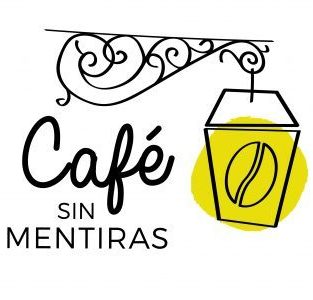
Dangerous attitudes we apply working in Specialty coffee, and why we should stop.
I think I am about to write about the problems that worry me the most, and therefore, it will be the most important post I wrote here.
This topic appeared out of nowhere in 2 days, after having some talks with the coffee people recently. Those who work and live coffee, so to say.
And these conversations left me a bit worried, but at that moment I couldn’t define why.
There are lots of us, and we perceive specialty in very different manners. We can think about specialty coffee as about something elitary, expensive, hard to understand, an endless field for giving “education”, sourced directly, exceptional taste, attention to details at every step, endless field for progress and growth, real application of science, market for expensive and good equipment, market for expensive and bad equipment, market for fraude, nice looking latte art in a good cup, N-leveled tulip in a huge cup, underdeveloped sour and light roast, perfectly developed light roast, “frappuccino”, blind cupping, striving for S-curve, sour espressos, fresh crop, knowing the farmer, pour over, no sugar…
All I mentioned (and the list, of course, is not finished at all) is how we think about Specialty Coffee. We, in our mass. Choose your 5. Let your friend choose. Discuss. We’ll find how different we perceive Specialty.
Some of these attitudes are fine, some are ok, but I would like to talk about those which hold us back.
- Not measuring. Everything we could. Writing down every possible data we could. Not knowing your espresso recipe, not monitoring the extraction yield and TDS, not monitoring the roasting curve, not using refractometer… Measuring things by eye or by sight, or just by taste – any way of treating coffee like some kind of a magical art that cannot be understood, is a crime against coffee.
- Not analysing the data. Having the data and not analyzing it?..
- Not learning, not pushing forward, not striving for more, settling for what´s enough, or what was enough couple of years ago
- Not implementing the new available scientific data (for example, hot topic about water composition and pressure profiling)
- Not being open for changes and for new information. Super important. The most important piece here. If we learnt something in the last 10 years – is that all the old dogmas were destroyed. Pressure of the tamping, temperature of the brewing water, preferably soft water for brewing, always declining RoR, naturals are defective, water pressure should be 9 bar etc… It would be crazy to create new dogmas, and even more insane – to not to be looking for new pieces of information, for the results of new experiments – if not conducting them yourself. It is like a test. If an answer contains “always” – it is a wrong answer. To stick with the new dogmas, closing yourself from the new information – is the way to stuck somewhere in the back, while the industry is rushing forward.
- Not seeing the market clearly, not just specialty coffee – but coffee in general. People drink coffee. People like coffee. Coffee – is not just specialty coffee. It is instant coffee, pods, capsules, filter coffee made from the coffee from the supermarket, it is coffee from the vending machines, it is Starbucks. People drink different coffee for different reasons, and not everybody will like specialty. Not everybody needs to be “converted”. Specialty is not “the right choice”. It is just a choice, among others. Let’s respect and understand the tastes, and the reasons.
- Focusing on the machines more than focusing on skills. I want to talk about this a bit more. Every year we get something new. Gravimetrics, pressure profiling… Business – business cannot adquire new machiene every year. Of course we want to play with it, but where to take the money, and why, especially if the old machiene works fine? Having new high-tech equipment is good. Knowing how to use it for your benefit is perfect. But having a barista that knows how to distribute the grinds, and understands the espresso making process is priceless.

One thought on “#29. Things that we do (or think) that hold the Specialty Industry back”